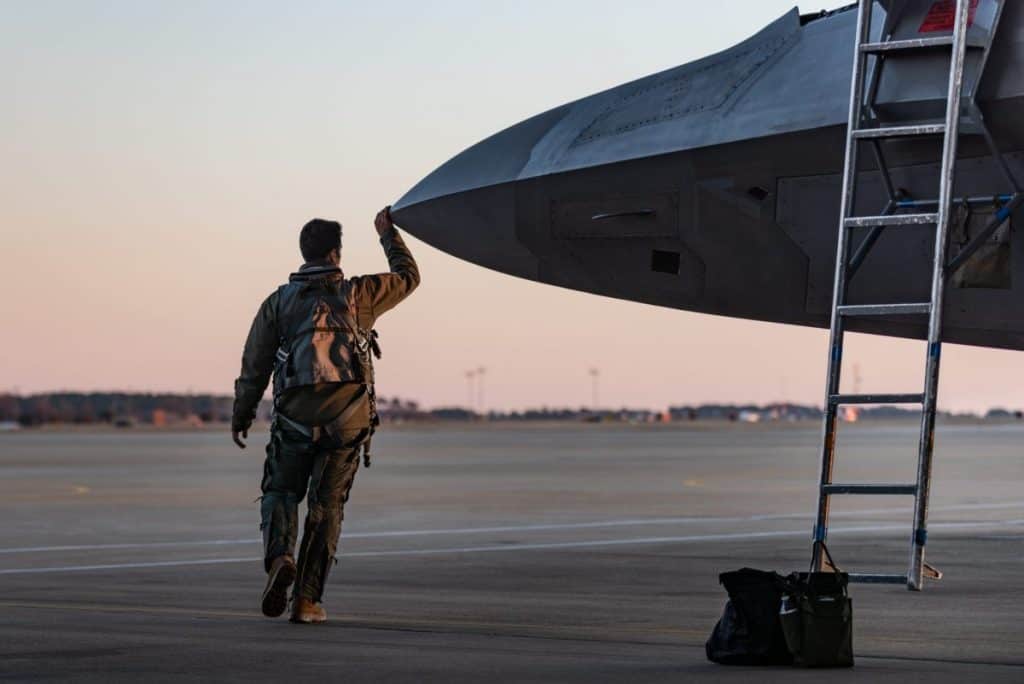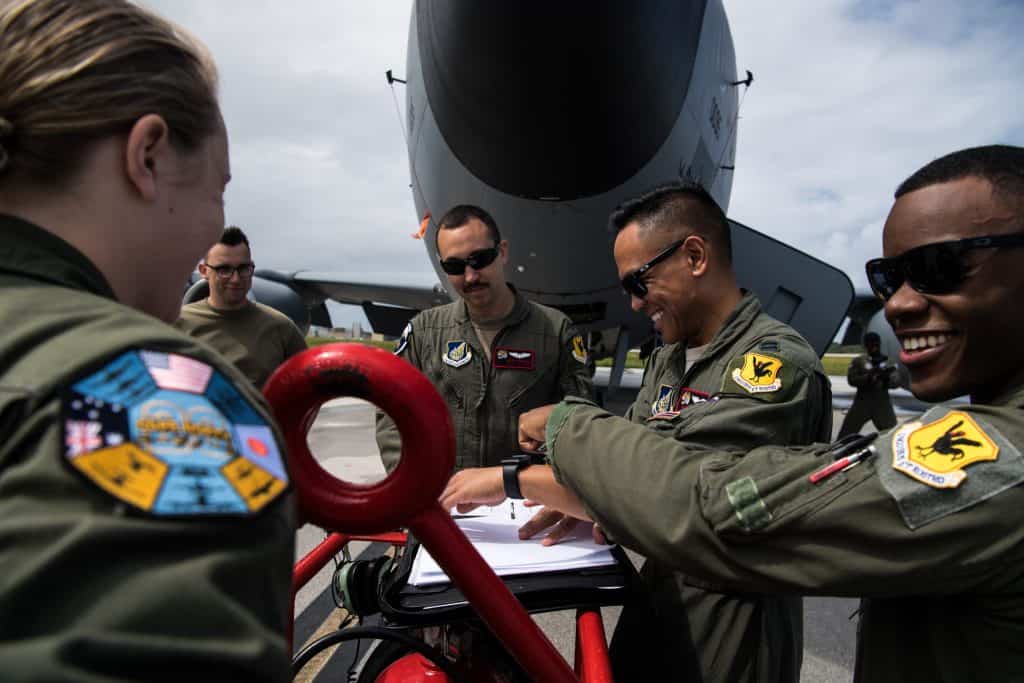It’s Who You Know: Asking For—and Getting—A Quality Recommendation

The airline application process can seem endless. The amount of paperwork is immense; there is the application itself, the resume, cover letter, a list of everyplace you’ve lived for ten years, every job you’ve had, copies of every identification document in existence, your logbooks—you’ll quickly begin to feel like you need to hire a personal assistant to handle the process. Somewhere along the way, you’ll need to get between three and five recommendation letters. You’ll be asking people to write a well composed note to your future employer extolling your virtues as a pilot and as a human being. Who do you ask to handle this task? What should they put in the letter? This article will answer those questions for you and give you a formula for getting the recommendations that will help get you hired.
Why do you need recommendations, anyway?
Let’s face it: as a military pilot, you already have an impressive resume. The airlines know what you’ve been doing and the quality of training that you’ve received; you’re coming from one of the most records intensive work environments in the world. Obviously, you’ve risen to the top of the pile in your career thus far—simply graduating from UPT and getting to an operational unit is a feat that the airlines will rightly respect.
While your resume and work history is impressive, there is a lot that those things don’t say about you as a person. Being an airline pilot is much more than simply flying the airplane. In a multi-crew cockpit, your ability to get along with people from a wide variety of backgrounds is extremely important. You’ll be dealing with ramp personnel, gate agents and passengers of every conceivable ethnicity and education level. As an airline pilot, you’ll be spending hours at a time in a confined environment with people you don’t know—and that you might not like all that much. Airlines work because the people who make the airplanes move are dependable; they show up on time and ready to do the job.
If this doesn’t sound any different than what is required of you in the military, it isn’t. The trouble is, the airline doesn’t know you—yet. That’s why you need a few good recommendation letters. The interview isn’t really about whether you can fly the airplane. It is much more about whether or not the folks conducting the interview can imagine looking forward to spending four days with you in the cockpit. Having a few people vouch for your personality and work traits can help them see you for the great person that you are.
One of the other important functions of good recommendation letters is that they can help you to get your foot in the door. By virtue of coming from the military, your resume is already outstanding. But, if the airline has more applications than they need to fill an interview schedule, a good recommendation (especially if it’s an internal recommendation) can help your application rise to the top of the pile.
Who to Ask for Recommendations
Any old person on the street won’t do when it comes to writing a recommendation letter for you unless that person happens to be an airline CEO. Optimally, you want to solicit recommendations from people who both know you well and have flown with you. If they are employees of your target company, so much the better.
Start by making a list of likely candidates. Old friends or bosses from the units you’ve been a member of are natural choices, especially if they currently work the airline to which you are applying. Airlines will want to see some letters from people who have seen you fly, so mine your memory for the names and faces of people you had good experiences with.
Here’s an important point: it helps if you know the people you are asking for recommendations well. Especially if they work at your target airline, it is good if you have some idea about what their reputation is. You might have had a great time flying with Lt. Col. Snuffy, but you remember him as kind of a “piece of work.” If someone is likely to be the squeaky wheel at the airline you want to work for, you might want to skip asking them to act as a reference. The airlines tend to assume that “birds of a feather flock together;” you don’t want them to make the assumption that you too are a trouble maker.
While internal recommendations from people you have flown with are the Holy Grail, getting a non-flying reference or two can be helpful as well. Maybe you do some volunteer work; have a person you’ve volunteered with write about your selfless generosity. Perhaps you mentor in a school or coach a sports team—airlines love community involvement. Even friends who you’ve known for decades can be good sources of recommendation letters. The airlines want to know that you are technically competent and safety oriented, but they also want to know that you’re a good person and citizen as well. The point here is to show that that you have an interesting and multifaceted personality. Airlines don’t like to hire one trick ponies.
The Big Ask
Asking for someone for a recommendation can—and should—involve a bit more than simply saying, “can you write me a letter?” Putting some thought into the conversation before it occurs can help ensure that you get the product you’re looking for.
A good place to begin is by revisiting old experiences. Talking about a deployment that you endured together or a sticky in-flight situation will brighten potentially rusty memories in the mind of the person that you want to write your letter. Make sure that you are clear about your goals, intentions and timeline; it won’t do to ask a person for a letter and leave the timeframe open ended. Ask about their current situation; make sure they have some time and energy to devote to the task.
Throughout the airline application and interview process, remember that you are selling a product—yourself. When discussing a recommendation letter with someone that you want to speak up for you, tell them about recent events in your career and things that you’d like to highlight. Listen to their suggestions; they might identify some attributes you have that you haven’t thought of yet. Give them a copy of your resume. Not only is this a good crib sheet for the person writing the letter, but you might get the benefit of some free editing help as well.
Formats for recommendation letters differ by airline. Some airlines appreciate an internal recommendation walked in by a current employee. Others ask for references as part of the application process; these airlines will send requests for recommendations to your references, usually via email. Make sure that you ask a reference before listing them, and make doubly sure that you have an email address for them that they regularly check.
Effective Recommendation Letters
It’s ok if the folks writing your recommendation letters don’t have degrees in English literature—these letters don’t need to be epic tomes or Greek tragedies. You should, however, try to get letters from people who you know are good at conveying a message in writing. After all, they will be vouching for you. Letters should be relatively short—three paragraphs are optimal.
When thinking about what you want people to highlight in a recommendation, consider what it is the airlines are hiring you to do. They want a dependable, professional, safety oriented pilot who is focused on completing the mission at hand. Airlines want a person who gets along with others well and who demonstrates community involvement and a caring attitude towards people—remember that the airline’s bills are paid by customers. You should talk through some ways that these qualities can be conveyed in your recommendation letter; you probably won’t get a chance to edit it, especially if the writer will be responding to a request from the airline. Make sure that the letter will indicate the length of time that the writer has known you and the capacity in which they have worked or interacted with you. The airlines want to know that this is a legitimate recommendation, not just a form letter from someone who doesn’t know you well.
You may run into a situation in which someone wants you to write the recommendation letter yourself. This happens more than you might think; people want to help but sometimes lack confidence in their own writing skills. You can write it yourself, but make sure that you check with the person it is from before handing it in. If they want to take a truly hands off approach and not read it at all, it is best to steer clear of this person as a reference.
Recommendations are Just Part of the Equation
Recommendation letters can open doors, but they can close them too. Be methodical and thoughtful in your search for likely candidates to write on your behalf. Look for internal recommendations at your target airline, but don’t disregard other sources as well. Make sure your references are well equipped with a current resume and some information about your activities and goals. Once you get hired, offer your recommendation to those coming behind you. Having been through the process, you’ll be uniquely qualified to help other pilots fulfill their goals as well.








Responses